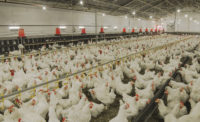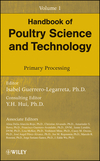Promoting a culture of scientific advancement
Research is one of the main pillars that USPOULTRY and its foundation is built upon.

Courtesy of the US Poultry & Egg Association
The poultry industry is currently faced with a number of challenges that can only be addressed through basic and applied research. From diseases, such as highly pathogenic avian influenza and necrotic enteritis, to food safety concerns with Salmonella and Campylobacter, research can provide the vital information to address such issues. Research is one of the main pillars that USPOULTRY and its foundation is built upon. They have a strong commitment to the advancement of research.
USPOULTRY has a Comprehensive Research Program and a Board Research Initiative program, which together, are the two strong arms of the USPOULTRY Research Program. The CRP is considered the traditional program and funds research in 11 broad topic areas that address the priorities and needs of the industry. The BRI program operates separately and does not compete for funding or resources with the CRP. The BRI program releases special requests for proposals on specific topics that represent emerging problems or emergency matters. To keep up with the changing needs of the industry, research priorities are evaluated and updated every two years.
At any given time, 30–35 active research projects are ongoing, and new research is funded twice each year during a spring and fall research competition. Research projects are currently underway to evaluate the reduced hatchability in breeders, develop live attenuated vaccines for avian reoviruses and chicken Spotty Liver Disease, create new vaccination strategies for Infectious Laryngotracheitis Virus, identify the best sampling technique in processing plants to predict Salmonella load, assess combined sprinkler and cool cell systems on cooling water usage, calculate the needed floor space for cage-free layers, promote clostridia dermatitis prevention methods, conduct risk assessments for Salmonella in poultry, discover new and innovative tools for the depopulation of HPAI-infected poultry, improve hatchery management, enhance nutrition for commercial egg layers, detect prevention techniques for Blackhead in turkeys, understand how to control Enterococcus cecorum in poultry, discover new diagnostic techniques for diagnosing Egg Drop Syndrome and use artificial intelligence to improve animal welfare. These represent only a few of the numerous research studies that are in progress and will provide crucial findings to improve poultry health, welfare and management.
USPOULTRY’s research program is dynamic and constantly evolving and advancing to meet the needs of the poultry industry. Timely transmission of technical information is imperative, and thus findings from all completed research projects can be accessed online and utilized. Through its willingness to apply research to solve practical problems, the poultry industry will continue to reap the benefits of research.
Looking for a reprint of this article?
From high-res PDFs to custom plaques, order your copy today!







